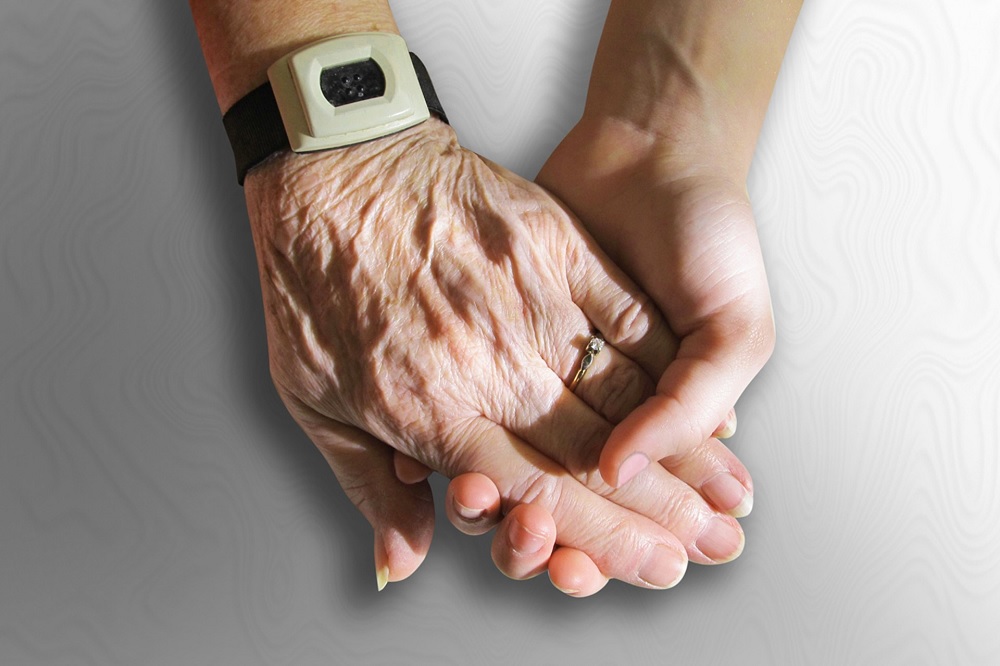New research launched into bilingual care and services for people living with dementia

New research is being launched which could lead to dementia patients having the choice of taking part in their clinical assessments in Welsh or English.
The new research is being launched at a Dementia and the Welsh Language webinar on 25 January hosted by the Centre for Ageing & Dementia Research.
The world-leading centre will bring together experts from Bangor and Swansea Universities who are addressing key questions in ageing and dementia.
The new research, funded by the Welsh Government will establish the robustness of the tests when used in Welsh, ensuring that two people with the same degree of cognitive impairment should achieve the same result from the test irrespective of which language they are assessed under.
Dr Catrin Hedd Jones, a dementia lecturer at Bangor University, wrote a research briefing, recommending that Welsh language versions of the standard dementia tests should be offered to Welsh speakers
This recommendation was embodied in the Welsh Government Dementia Action Plan, and IAITH: Welsh Centre for Language Planning is now responsible for testing the Welsh language versions with Welsh speakers.
Bangor University will work on this research in collaboration with clinicians across Wales to support the delivery of the Active offer. The Active offer requires those delivering services to ask which language a patient would be most comfortable using and then ensuring that they can be supported to use their language in care and support settings.
Wellbeing
Dr Catrin Hedd Jones of the University’s School of Medical & Healthcare Sciences said: “We know that verbal communication can become a challenge for some people living with dementia and it is vital that Welsh speakers are supported throughout their journey with dementia to communicate in the language that feels natural to them.
“This is not a matter of choice but a clinical need and failure to do so could increase the risk of inappropriate test results / care. We are delighted that the Welsh Government has supported this work to ensure that clinicians have full confidence in the translated tests.”
Dr Katheryn Jones of IAITH, said: “IAITH is delighted to be involved in this important new Welsh Government funded research that will collate information on Welsh language versions of cognitive assessment tools/scales that are currently available and in use across Wales and further develop the normative data available allowing the confident interpretation of assessments carried out in a clinical context with speakers of Welsh.”
Professor Gill Windle, co-Director of the Centre for Ageing & Dementia Research and Professor at Bangor University’s School of Medical & Health Sciences commented: “It’s exciting to see such a broad swathe of on-going research into language use in the context of dementia and ageing.
“The language we are able to use has a profound effect on our well-being, and we need to consider this when planning and delivering all aspects of care for older people or people living with dementia in a caring bilingual society.”
The five speakers at the webinar will present the latest research on the impact of language on wellbeing, individual experiences, Welsh policy, and testing translated cognitive tests for Welsh speakers.
Anyone interested in joining the online seminar can view the speakers and register using this link
Support our Nation today
For the price of a cup of coffee a month you can help us create an independent, not-for-profit, national news service for the people of Wales, by the people of Wales.







About time, it is terrible that people can’t get care privided in their own language. I discovered this when I lived in Llanelli, a very Welsh speaking area, with private care homes providing services in English only. It is the same with Age UK in Wales all their posts on social media where in English only, the last time I looked, probably run by people who can only speak English to cater for English people who have moved to Wales. Shocking really, the people running these services are not fit for the job. Just imagine if this was the case… Read more »
All I know is that when my mother died in Mortiston hospital every single sign was in a English and Welsh but no one on the ward spoke Welsh, they were local from the accents. I did not know until that time that my mother’s native tongue was Welsh. I always spoke Welsh to my father and English to my mother. They were hard working and caring but could only say dim Cymraeg but then only 30% of Wales speak Welsh so in some ways not surprising
Morriston Hospital is part of the NHS so the signs will be in Welsh as well as English, but sadly that is not the case in privately owned care homes